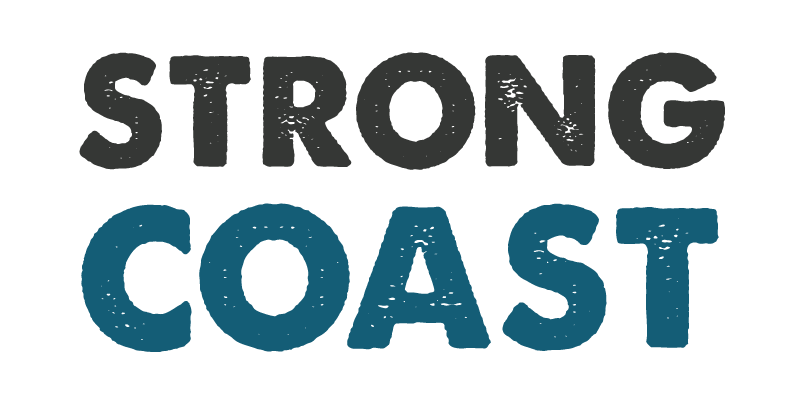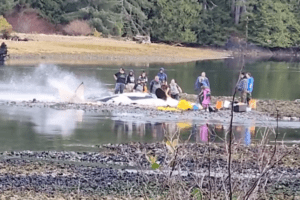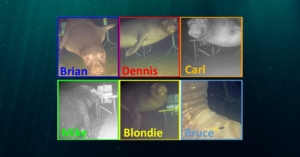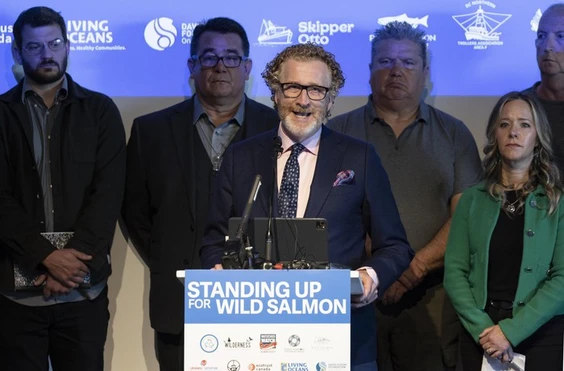
A diverse group comprised of Indigenous, commercial, and sports fishers; tourism businesses; scientists; and NGOs has united to urge Prime Minister Justin Trudeau to fulfill his 2019 campaign promise to transition BC away from open-net fish pens by 2025.
The group, which came together on Tuesday to make their statement together, includes the First Nation Wild Salmon Alliance and Skipper Otto (an association of independent fishing families). According to the Alliance, 120 First Nations and 75% of British Columbians want open-net salmon pens out of the province.
Open-net salmon farms have long been a source of contention on BC’s coast. Critics argue that the farms can spread diseases and parasites, such as sea lice, to wild salmon populations, disrupting their migration and spawning cycles. Additionally, farm waste and excess feed can pollute local marine ecosystems, potentially causing harmful algal blooms and degrading water quality. There are also worries that escaped farmed salmon could compete with wild salmon for resources or interbreed with them, affecting the genetic integrity of wild populations. These factors have raised significant opposition from environmental groups, Indigenous communities, and commercial fishers who depend on healthy wild salmon stocks for their livelihoods and cultural practices.
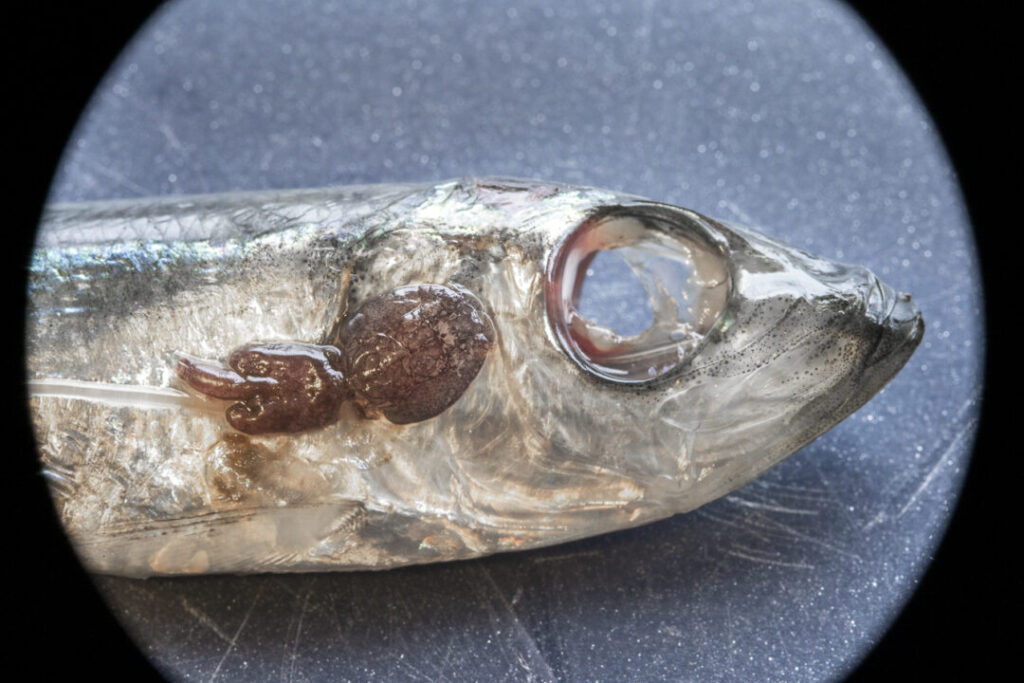
In 2022, it was discovered that as many as 817,000 herring may have been killed by salmon farms due to the practice of “hydrolicing.” Hydrolicers vacuum up farmed salmon and use a powerful spray to de-louse the salmon. However, smaller wild fish are often caught in the process and killed by the force of the power washer.
The federal government has known the negative impacts of salmon farming for some time. In 2019, Trudeau tasked the DFO with developing a “responsible plan” to work with First Nations and the province to transition away from open-net salmon pens by 2025. However, as the deadline approaches, Alliance members expressed concerns that meaningful progress has yet to be made.
“Prime Minister (Justin) Trudeau, we implore you to keep your promise to ensure DFO fulfills its primary responsibility, not the interests of multinational corporations infesting our waters and threatening a way of life for First Nations and British Columbians,” said Bob Chamberlin, chair of the First Nation Wild Salmon Alliance.
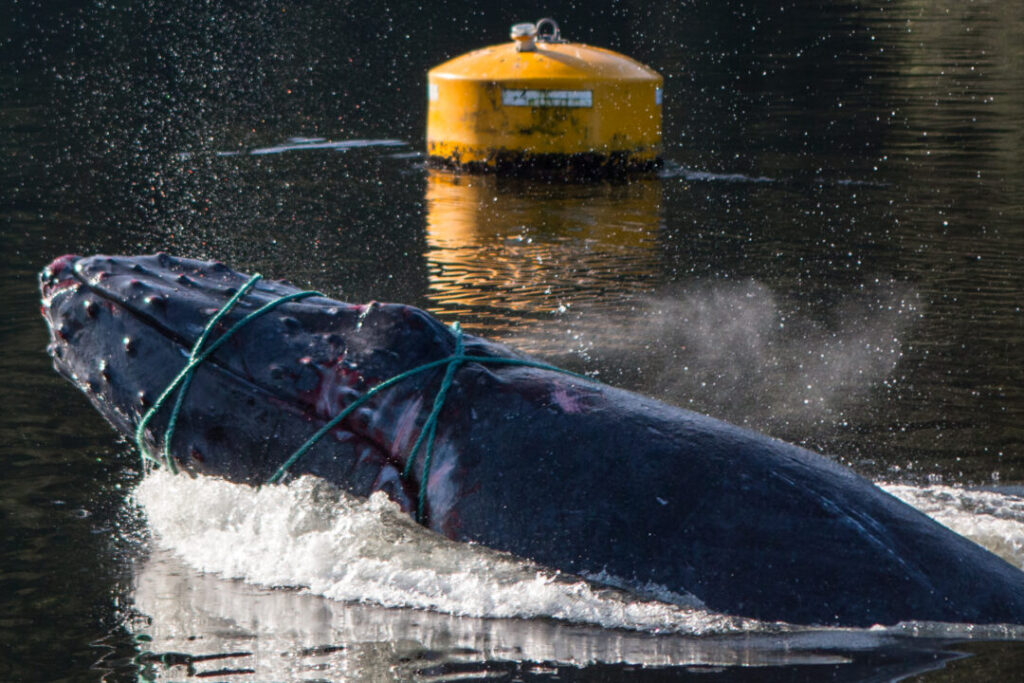
The Alliance stressed the importance of facilitating the recovery of wild salmon populations, which they believe will be sped up once fish farms are eradicated from BC waters.
Not all First Nations, however, oppose open-net fish farming. The Coalition of First Nations for Finfish Stewardship (FNFFS) highlighted the economic benefits of aquaculture. According to FNFFS, 17 First Nations have formal agreements with fish farms, employing over 500 Indigenous people and generating $50 million annually in direct economic benefits.
However, members of the Alliance argue that international companies cannot be relied upon to be responsible stewards. Recently, salmon farms in Norway and Chile have come under scrutiny for not living up to their sustainable certifications. Norway is the world’s biggest producer of farmed salmon. Critics claim these farms “operate outside their allowed permits, destroy the environment, falsify records, and even operate within marine protected areas.” Additionally, disease and infection are causing Norwegian salmon farms to lose up to 25% of their total production.
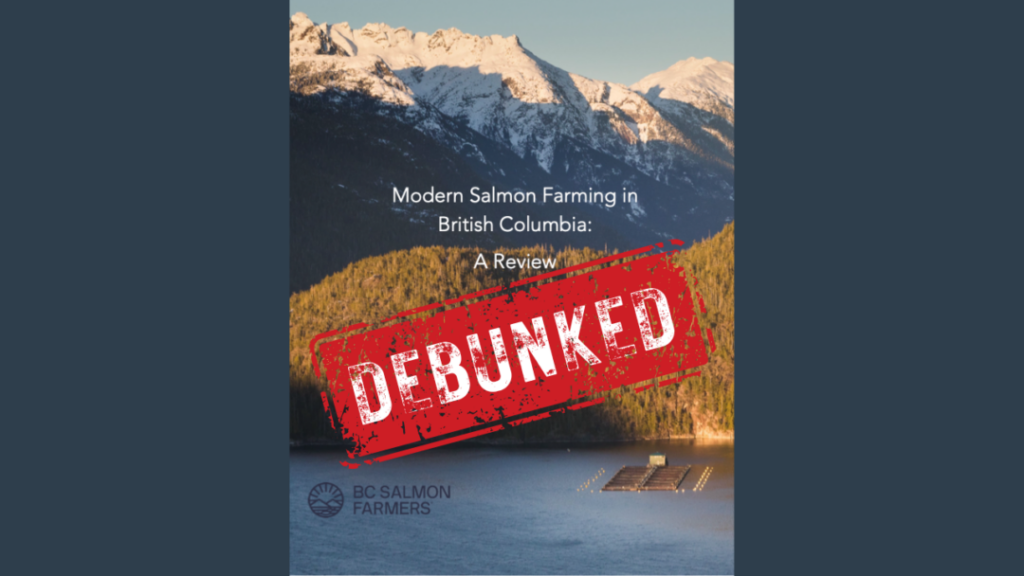
Tyrone McNeil of the Sto:lo Tribal Council emphasized the need to protect wild salmon from foreign corporate interests. “Foreign corporations have foreign interests. They have nothing to lose and everything to gain; we have nothing to gain and everything to lose.”
Sonia Strobel, CEO and co-founder of Skipper Otto, stated that 8,000 people across Canada rely on wild salmon for their livelihood. Strobel noted that there has been an observable decline in wild salmon numbers since salmon farms were brought to BC. While acknowledging that salmon farming creates jobs, Strobel emphasized that thriving wild salmon populations supported many more jobs and could do so again if allowed to recover.
Make sure you’re up to date on the latest news regarding the future of salmon farms in BC by following us on our Facebook page.
For more on this story, check out this article.
